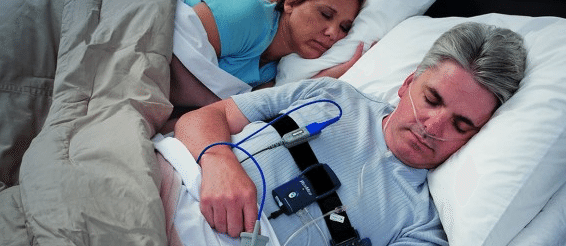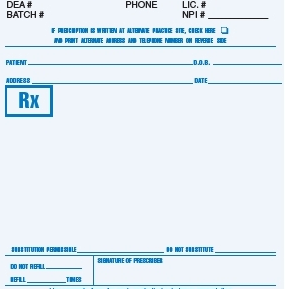Debating the Responsibility for CPAP Machine Prescriptions
Who Should Write CPAP Machine Prescriptions?
Ostensibly behind the scenes in the sleep disorder quadrants of the medical field, a debate is ongoing as to who should have the responsibility for writing CPAP therapy machine prescriptions. Today, any licensed physician can write a prescription for a CPAP machine. Still, the sleep disorder community of specialists falls on both sides of the debate with some seeing this as good and some as a bad precedent.
Seep therapy experts argue that it's imperative that only those that are board-certified in sleep medicine be able to write CPAP machine prescriptions. Their reasoning is based on evidence showing that CPAP therapy patients of physicians that are board-certified in sleep medicine have a higher compliance rate.
Increasingly, CPAP therapy patients are obtaining their diagnosis from physicians that base their diagnosis partly on home-based sleep studies. Some within the sleep disorder community say that since the OSA decision-making process is so complex, it is best handled by physicians that are board-certified in sleep medicine. A recent article in the journal Chest laid out the perspective against the current status quo of physicians without sleep medicine board certification prescribing CPAP.

This camp posits that home sleep testing suffers from frequent false negatives that make it less accurate than lab-based polysomnography for diagnosing moderate-to-severe OSA. Some have cited studies showing only 85 percent agreement between home sleep testing and laboratory sleep testing results. They see this as one sign supporting the need for prescribing physicians to have specialized accreditation in sleep medicine.
On the other side of the debate are those that see continuing the policy of any physician being able to write a CPAP therapy machine prescription as a good thing. These advocates say that with millions of Americans going undiagnosed, the ability of primary care physicians that may not be board-certified to write prescriptions for CPAP therapy is a win for everyone. The logic is that it helps decrease those numbers and leads to healthier outcomes among the general population.
The possibility that a misdiagnosed patient receives unnecessary treatment is also seen as a no harm scenario from a clinical perspective. A CMS report backs this perspective with their conclusion that there is little harm to be done in prescribing CPAP after misdiagnosing a patient who does not have obstructive sleep apnea.
Compliance and Treatment Success
What is certain is that the true measure of success in compliance has little to do with whether decisions are made by board-certified or non-board certified physicians based on laboratory testing or in-home testing. Compliance and treatment success are based on the physician’s level of involvement with the patient. The support of the patient with follow-up and therapeutic programs that bolster the CPAP therapy are the real keys to long-term adherence and better health outcomes. Consequently, the more information that is shared between sleep specialists and primary care physicians will mean better outcomes for many more patients.
Conclusion
For additional information on various topics concerning sleep apnea and CPAP products, please refer to our blog. It is constantly updated and offers free advice and information. If you’d like to learn more about the quality sleep apnea products we carry, call us at (866) 414-9700. Or, you can contact us through our website.





